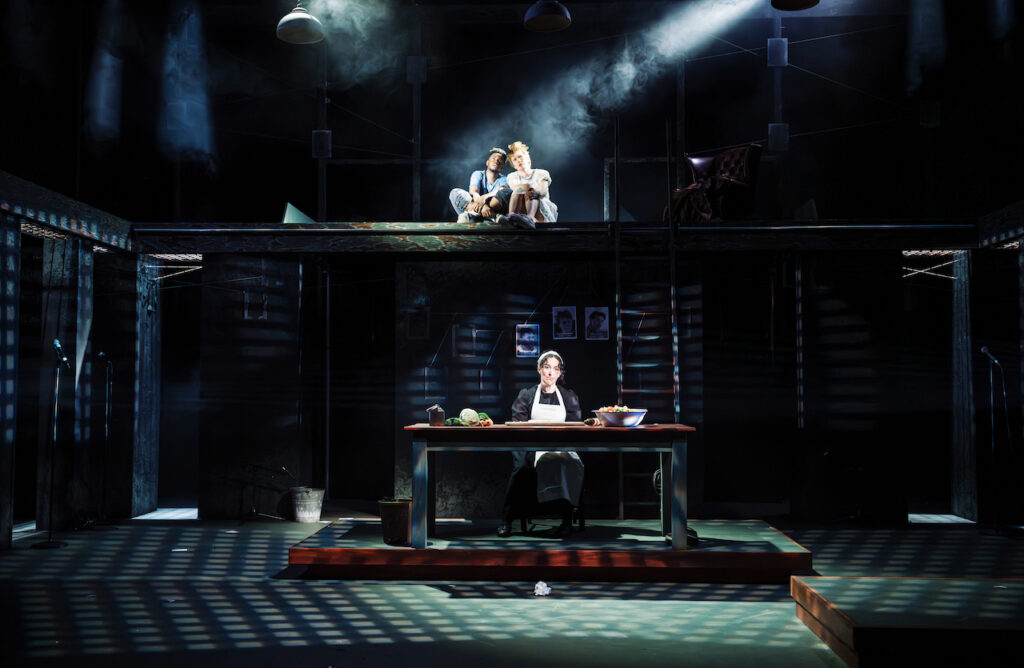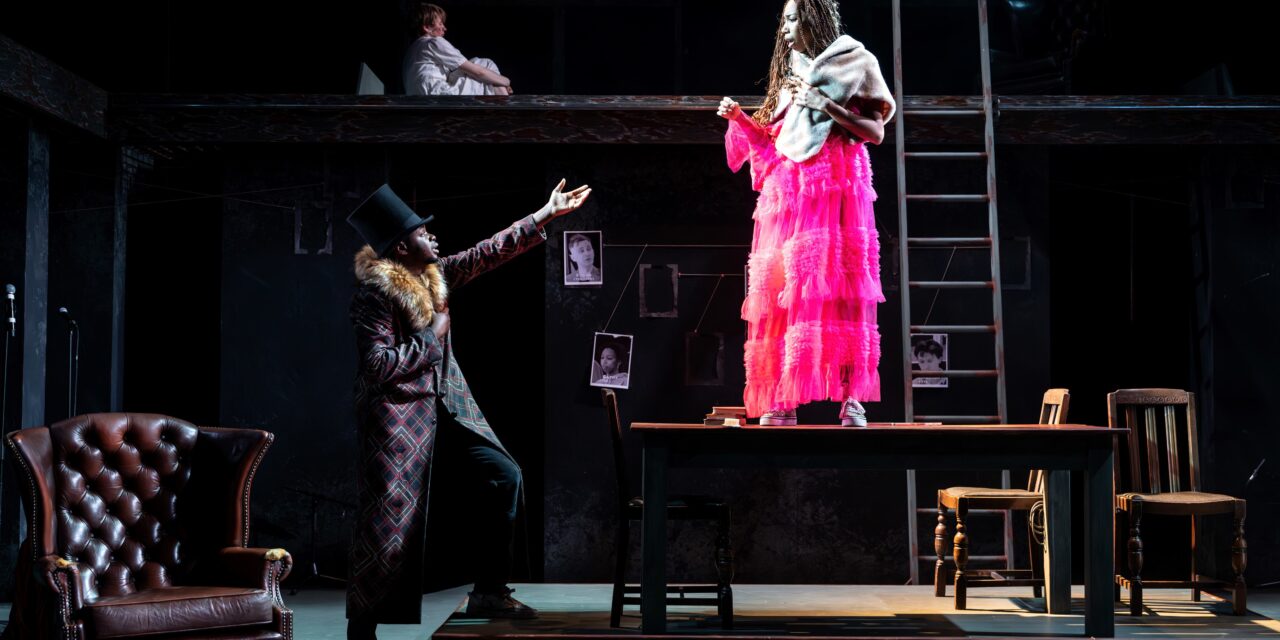
9 – 13 May
Director Lucinka Eisler tells us in her programme foreword that ‘as a company Inspector Sands have [sic] always been drawn to that uncomfortable line between comedy and drama where the awkward reality of being human tends to sit’. Appropriately, what emerges from the company’s confusing take on Emily Brontë’s Wuthering Heights is a production that cannot pick a tone.
Characters emerge on stage dancing and aping pop songs. The acting is broadly pantomimical with mugging, yelling and gurning being the key features. Vaguely appropriate period attire is interspersed with gaudy modern fancy-dress without clear significance. These all feel likes Choices (note the capital ‘c’). Choices meant to be bold and exciting, which were made completely independently of the aesthetics or content of the gothic novel. Choices emphasising the quirky iconoclasm of the company which feel like a desperate ploy for broadening appeal. Choices that nobody said ‘no’ to but probably should have.
Crucially, Inspector Sands’ take on Wuthering Heights is not even a fully realised farce. The stage is a drab and looming construction which aligns with the source material. At various points the play pivots to the dour tragic mode of the original and the modern affectation of speech is dropped for Brontëan dialogue, which carries all the gravitas that the play otherwise lacks. Whenever this happens though, the adaptation swerves aggressively back to its glib baseline. Every moment of weight and significance is unerringly undercut with asides and comic jibes. A deep sense of insecurity pervades the drama, that the production could not possibly let the audience take something serious from all this. In Wuthering Heights, no less. The result is neither fish nor fowl, as the two sensibilities battle and undermine one another. This is simultaneously a farce that isn’t funny and a tragic drama that isn’t serious.
As much as the tone is infuriating, the storytelling is baffling. This adaptation struggles throughout to allocate time to the scenes and content that matter. Heathcliff and Cathy’s idyllic period, where the strength and nature of their bond is established, is glossed over in a transition sequence. Heathcliff’s abusive marriage to Isabella is likewise a fleeting detail that is established and dropped just as quickly. Again and again, the core emotional beats which serve as foundations for the relationships between these characters and the font of their future actions are neglected. Without prior knowledge of Wuthering Heights, I am not sure you would be able to follow the plot as presented here. An attempt to plaster over these issues with exposition being delivered in a framing device introduces its own problems.
The framing device of having housekeeper Nelly recount the plot under interrogation never coheres thematically or narratively. In the book she is telling this story to a lawyer, but here the interrogator – whose voice is shuffled around the cast – is never identified nor their intents made clear. Rather than assisting in parsing events, the interrogator seems more interested in holding Nelly to account (when she is broadly an observer in the plot…) and a great deal of attention is taken away from the more pivotal characters, notably Heathcliff and Cathy. Furthermore, most of the questions go unanswered, leading questions only serve to make explicit what little subtext is being established on stage, and the exposition prompted does nothing to demystify the messier elements of the storytelling. It is as though Nelly is being quizzed by someone only interested in the most inconsequential elements of the story.
The overall impression is of a production developed without the inclination to pay sufficient attention to the spirit of Wuthering Heights.
★☆☆☆☆ Fenton Coulthurst 10th May 2024
Photo credit: Alex Brenner


